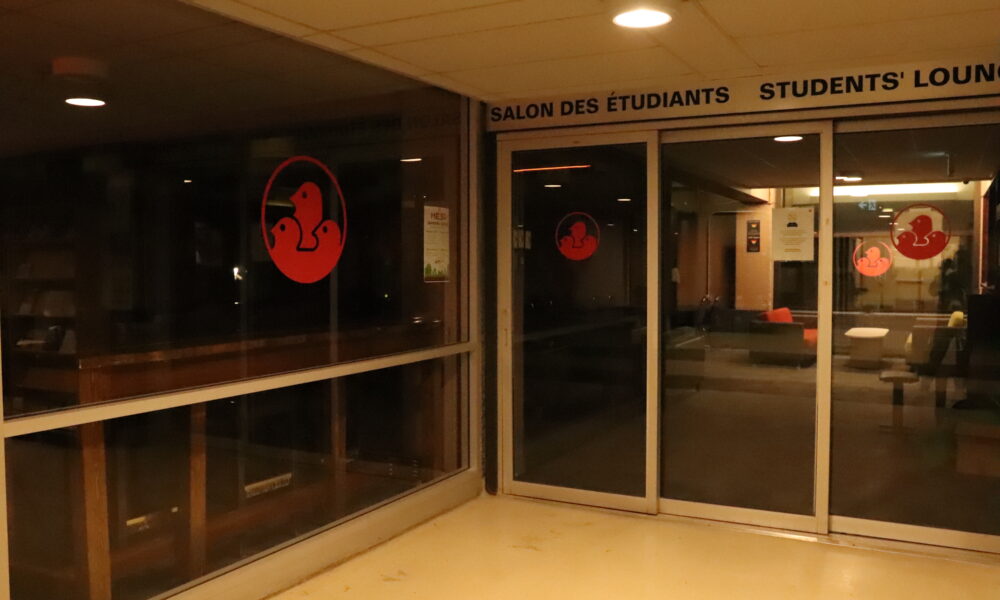On the afternoon of April 7, the McGill community received an email on behalf of Interim Deputy Provost (Student Life and Learning) Angela Campbell with the subject line “Termination of the SSMU-McGill Memorandum of Agreement.” The email—which condemned the Students’ Society of McGill University’s (SSMU) student strike the week before—outlined that the University sought to end the Memorandum of Agreement (MoA) with SSMU, the document that governs the relationship between the parties. Per the MoA, this means that SSMU and McGill will enter a mediation process, during which the Agreement, and thus SSMU operations, will remain in effect.
Following a SSMU Special General Assembly (SGA) on March 27, 2,731 students voted to ratify a strike for Palestine from April 2-4. Throughout the three days, organizers picketed classrooms, offered educational programming, and hosted a student rally on April 5. During the rally, a protestor smashed the window of Dean of Engineering Viviane Yargeau’s office with a fire extinguisher filled with paint. Campbell wrote that a staff member was hit. In addition, protestors successfully cancelled certain classes as a result of picketing. Campbell denounced these actions as a “[violation of] our collective values.”
“Last week, SSMU allowed and, at least tacitly, supported a three-day strike that further divided a campus community already deeply cleaved and hurting,” Campbell wrote in the email. “The SSMU can and should have ruled the motion that led to the strike referendum as out of order given SSMU’s governing documents, but opted against this. The result was a campus environment in which dozens of classes were blocked or interrupted.”
Students for Palestine’s Honour and Resistance (SPHR) at McGill, one of the groups involved in organizing programming, expressed what they believed to be the reason for McGill’s response in a statement to The Tribune.
“McGill has once again attacked the Pro-Palestine student movement, threatening to crack down on our democratic channels,” SPHR wrote. “This newest threat is a reaction to pressure from zionist donors and our warmongering political class, who are desperate to regain control of a student body that stands with Palestine in its struggle for liberation. As always, repression sharpens the contours of the student movement. We call on our union to stand firmly with Palestine and our democratically enforced demand for divestment.”
Under section 16 of the MoA, McGill and SSMU must now enter mediation to attempt to reach a resolution. This process is estimated to last until June. If the parties do not reach an agreement, SSMU’s operations would not cease but would be severely impacted. Primarily, SSMU’s lease of the University Centre would be terminated meaning services, clubs, and independent student groups would lose access to those spaces, and Gerts Bar & Café would close. The student union and associated student groups would also no longer be able to operate using the McGill name. SSMU would still be able to receive student fees, however, allowing it to operate in an adjusted capacity.
This is not the first time in recent years that McGill has considered termination of the MoA due to SSMU’s activities. In 2022, the university made a similar announcement following a referendum vote that approved the Palestine Solidarity Policy with a 71 per cent majority of votes. In an interview with The Tribune, SSMU President Dymetri Taylor noted that McGill’s response was a culmination of what the administration perceived to be SSMU’s repeated violations of the MoA.
“It has to do with the strike, and it also doesn’t, because this is something that’s kind of been brewing for quite some time,” Taylor said.
Taylor affirmed that until mediation between the two parties is completed, all SSMU operations will continue to run.
“Everybody will more or less know when they come back in September, what’s actually been affected. Everything will be running as it originally was. There’s not going to be any changed operations. Employees […] are still very much employees. Insurance is still going on, bookings are still valid, nothing’s changed [….] everything is operating as usual,” Taylor said.
McGill denied The Tribune’s request for further comment.









